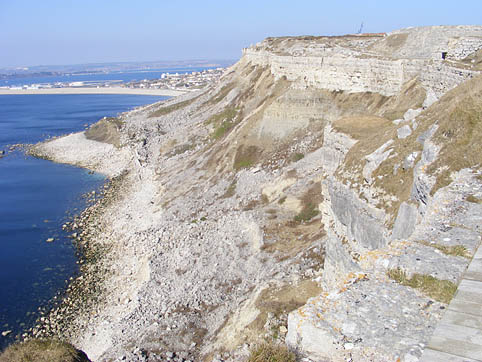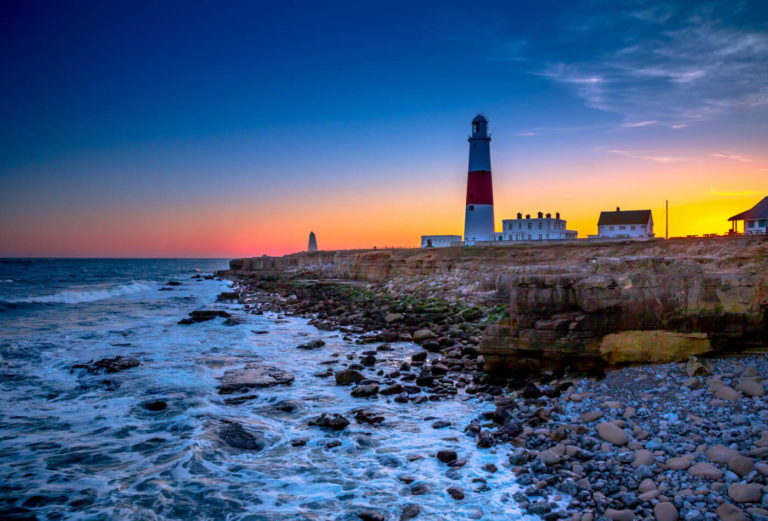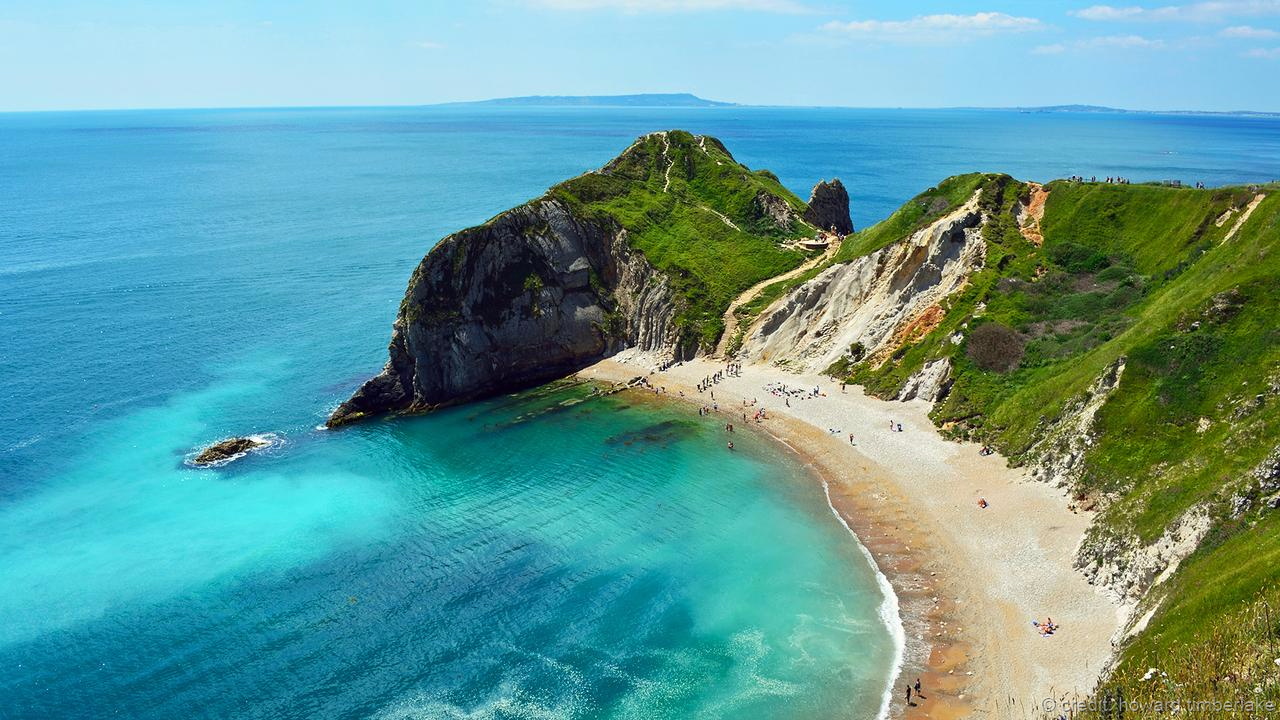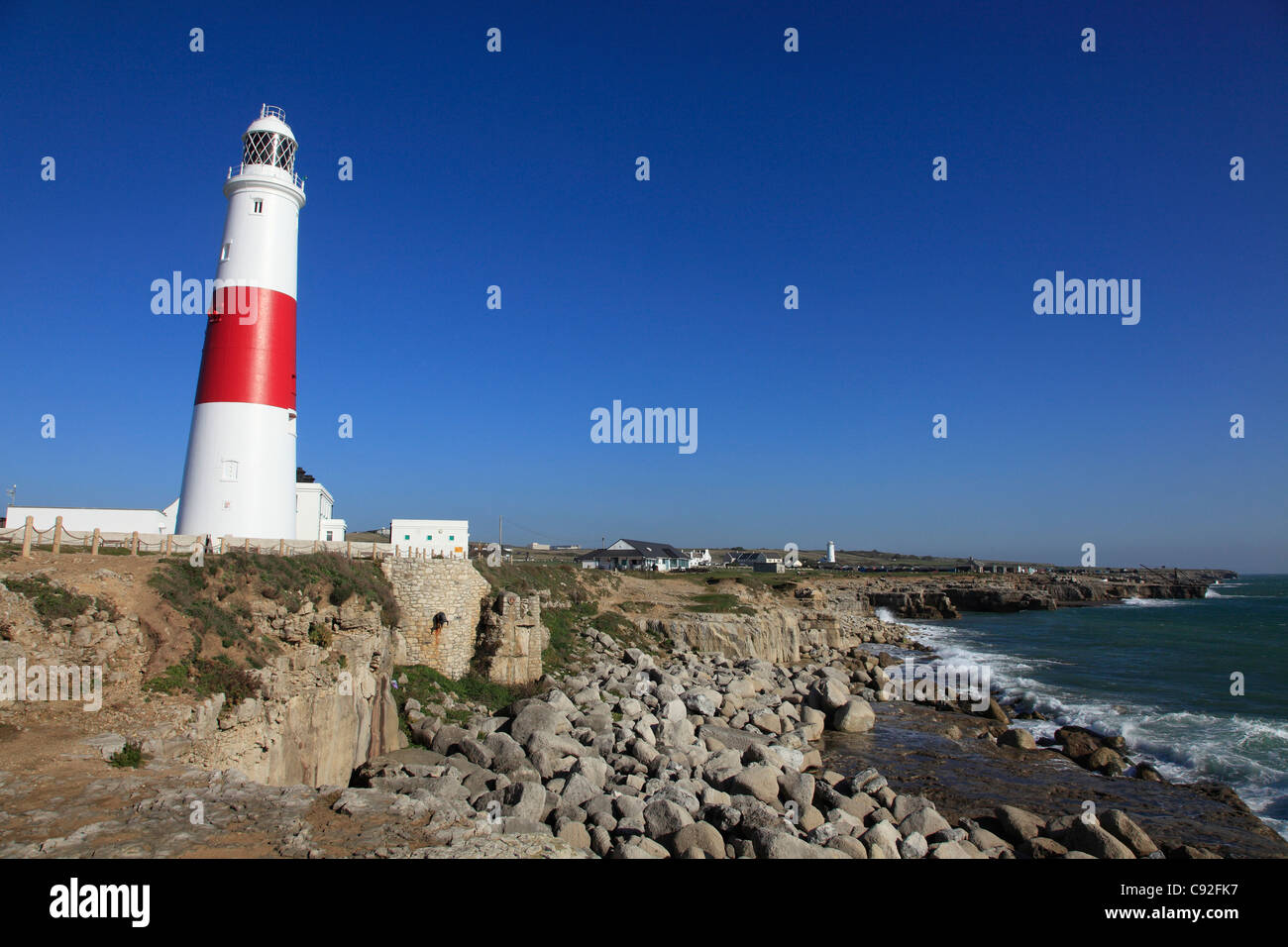Portland: A Geological Marvel and a Historic Haven on the Dorset Coast
Related Articles: Portland: A Geological Marvel and a Historic Haven on the Dorset Coast
Introduction
With great pleasure, we will explore the intriguing topic related to Portland: A Geological Marvel and a Historic Haven on the Dorset Coast. Let’s weave interesting information and offer fresh perspectives to the readers.
Table of Content
Portland: A Geological Marvel and a Historic Haven on the Dorset Coast

Portland, a dramatic peninsula jutting out into the English Channel, is a place of stark beauty and rich history. Its distinctive landscape, sculpted by geological forces over millions of years, has captivated visitors for centuries. The island, connected to the mainland by a narrow strip of land known as the Chesil Beach, is a fascinating blend of natural wonder, cultural heritage, and human ingenuity.
A Geological Tapestry:
Portland’s unique character stems from its geological origins. It is primarily composed of a type of limestone called Portland Stone, a material that has been quarried for centuries, shaping the island’s landscape and contributing to the construction of iconic buildings across Britain, including St. Paul’s Cathedral and Buckingham Palace. The stone, formed from the fossilized remains of marine organisms, is renowned for its durability and aesthetic qualities, adding to Portland’s enduring legacy.
The island’s dramatic cliffs, towering over the churning sea, are a testament to the forces that shaped the landscape. The dramatic cliffs, sculpted by erosion and weathering, reveal the layers of the earth, showcasing the history of geological processes. The Isle of Portland’s geological formations are not only aesthetically striking but also hold immense scientific value, providing insights into the earth’s history and the evolution of life.
A Haven of Wildlife:
Portland’s rugged coastline provides a haven for a diverse range of wildlife. Its rocky shores, sheltered bays, and the expansive Chesil Beach offer critical breeding and feeding grounds for various species. The island’s unique environment supports a rich tapestry of flora and fauna, attracting birdwatchers, marine biologists, and nature enthusiasts alike.
The Chesil Beach, a remarkable natural phenomenon, is a shingle beach stretching for 18 miles, separating the lagoon known as the Fleet from the open sea. This unique habitat, a testament to the interplay of geological forces and marine dynamics, is home to a variety of bird species, including the rare Sandwich Tern, and provides a vital refuge for migrating birds.
A Legacy of History and Human Ingenuity:
Portland’s history is deeply intertwined with its natural environment. The island’s strategic location has made it a significant military outpost throughout history. Fortifications, including the iconic Portland Castle, built by Henry VIII in the 16th century, stand as testament to the island’s role in defending the nation’s shores.
The island’s history is also marked by its quarrying industry, which has played a pivotal role in shaping the island’s economy and culture. The quarries, now a blend of active operations and reclaimed landscapes, offer a fascinating glimpse into the island’s industrial heritage. The quarrying industry, though facing challenges in recent times, continues to leave its mark on Portland’s landscape and economy.
A Destination for Exploration and Recreation:
Today, Portland is a popular destination for visitors seeking a unique blend of natural beauty, cultural heritage, and outdoor adventure. The island offers a range of activities, from hiking and cycling along the dramatic coastal paths to exploring the island’s historic landmarks and museums.
The Chesil Beach, a geological marvel, is a popular spot for walking, birdwatching, and enjoying the dramatic coastal views. The Fleet Lagoon, with its calm waters, is ideal for kayaking, paddleboarding, and sailing. The island’s diverse landscape offers a range of opportunities for exploring its natural beauty and discovering its rich history.
FAQs about Portland, Dorset:
1. How do I get to Portland?
Portland is easily accessible by road, with connections to the national motorway network. It is also served by public transport, with regular bus services connecting it to nearby towns and cities.
2. What are the best things to see and do in Portland?
Portland offers a range of attractions, including:
- Portland Castle: A historic fortress built by Henry VIII, offering insights into the island’s military history.
- The Chesil Beach: A remarkable shingle beach, stretching for 18 miles, providing breathtaking coastal views and a unique habitat for wildlife.
- The Fleet Lagoon: A calm lagoon, ideal for kayaking, paddleboarding, and sailing, offering stunning views of the surrounding landscape.
- Portland Bill: The island’s southernmost point, offering dramatic clifftop views and a lighthouse that has guided mariners for centuries.
- The National Sailing Academy: A renowned sailing center, offering a range of courses and activities for all levels.
- The Portland Museum: A museum showcasing the island’s history, geology, and culture.
3. Is Portland a good place to visit for families?
Portland offers a variety of attractions and activities that are suitable for families, including:
- The Chesil Beach: Ideal for family walks, sandcastle building, and exploring the rock pools.
- The Fleet Lagoon: A safe and calm environment for kayaking, paddleboarding, and sailing with children.
- The Portland Museum: Interactive exhibits that engage children and provide insights into the island’s history and culture.
- The Jurassic Coast: A World Heritage Site, offering fossil hunting opportunities and stunning coastal views.
4. What are the best places to eat in Portland?
Portland offers a range of dining options, from traditional pubs serving hearty British fare to cafes and restaurants offering fresh seafood and local produce.
5. What are the best places to stay in Portland?
Portland offers a range of accommodation options, including hotels, guesthouses, holiday cottages, and campsites.
Tips for Visiting Portland:
- Plan your visit in advance: Portland is a popular destination, so it is advisable to book accommodation and activities in advance, especially during peak season.
- Allow plenty of time to explore: Portland offers a wealth of attractions and activities, so it is advisable to allow at least two days to explore the island.
- Wear comfortable shoes: Portland’s landscape is rugged, so it is advisable to wear comfortable shoes for walking and exploring.
- Bring a camera: Portland’s dramatic coastline, historic landmarks, and diverse wildlife offer ample opportunities for photography.
- Take advantage of the island’s public transport: Portland is well-connected by bus, making it easy to get around the island without a car.
Conclusion:
Portland, Dorset, is a destination that offers a unique blend of natural beauty, cultural heritage, and outdoor adventure. Its dramatic coastline, sculpted by geological forces over millions of years, provides a breathtaking backdrop for exploration and recreation. The island’s rich history, intertwined with its natural environment, is evident in its historic landmarks, museums, and the legacy of its quarrying industry. Whether seeking a peaceful retreat, an active adventure, or a glimpse into the past, Portland offers something for everyone.







![[General view, Portland, England] (LOC) Portland dorset, Old photos, England](https://i.pinimg.com/originals/ec/9b/e5/ec9be57ea0e661c7aee9f2db2e089af6.jpg)
Closure
Thus, we hope this article has provided valuable insights into Portland: A Geological Marvel and a Historic Haven on the Dorset Coast. We thank you for taking the time to read this article. See you in our next article!